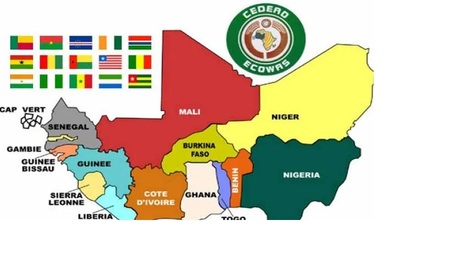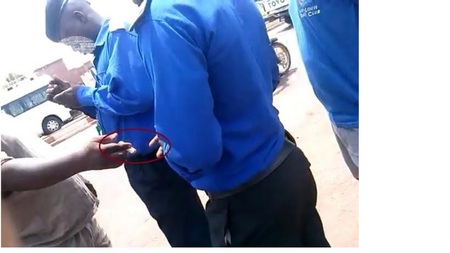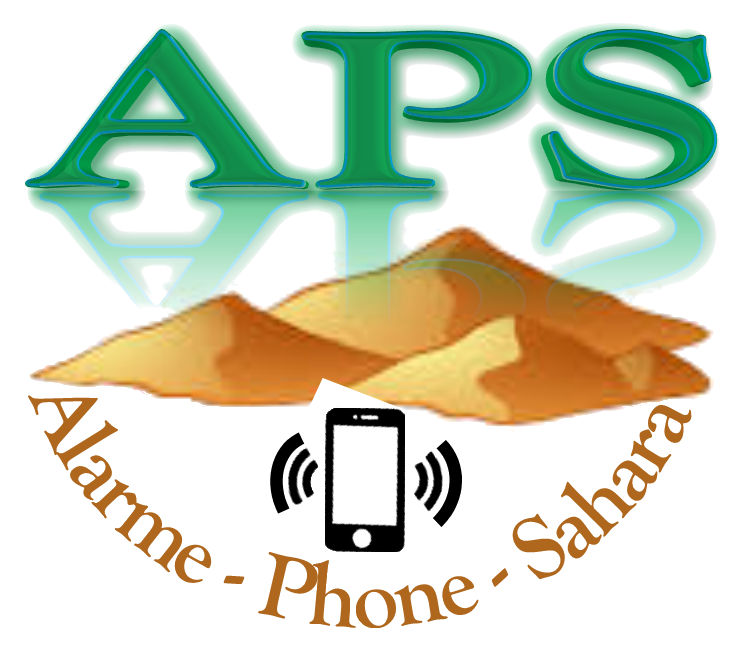
Travelling in this West African region in this time of insecurity is a real battleground. In addition to the costs inherent to the trip (transport and food), the passenger is required to have a sufficiently large wallet. For good reason, stigmatization and scams are recurrent on the roads. A team of APS on mission followed an itinerary in the sub-region and deciphered the passengers' experiences on the Niamey - Ouagadougou - Niamey Road.
ECOWAS is the Economic Community of West African States. It is a geographical area that includes about fifteen countries in French-speaking and English-speaking Africa. This is the result of agreements between countries after the colonial period. The birth of this community was intended to promote the free movement of people and goods for the prosperity of its peoples, who share a common history and secular ties, but are divided by borders drawn by the colonizer. At present, the Heads of State and Government of the member countries of the said community announce the need to strengthen the union of peoples.
Is it not in the same perspective that the 39th summit of the African Union (AU) was held in Niamey from 4 to 6 July 2019, on the fringes of which the project for a common zone called the African Continental Free Trade Area (ZLECAF) was announced, which promises balm to the heart of the peoples of the old continent through the ultimate integration of all 55 African Union States into the Free Trade Area? However, already moving around the ECOWAS area, where laws apply according to the nationality of passengers and above all according to the mood of security agents, raises a question of non-compliance with decisions at the highest level of Member States. The seriousness of leaders claiming to ensure the well-being of the governed must be rethought according to a historical logic.
History of the free movement of persons and goods within ECOWAS
The protocol on "free movement, residence and establishment" for ECOWAS member citizens was adopted on 25th of May 1979 in Dakar, Senegal. It was revised on 24th of July 1993 in Cotonou (Benin).
In its first point, Article 59 of the revised Immigration Agreement states that "citizens of the community have the right of entry, residence and establishment. And Member States undertake to recognize these rights for the citizens of the community in their respective territories in accordance with the provisions of the relevant protocols".
Further on, in its second point it is stipulated that: "Member States undertake to take all appropriate measures to ensure that citizens of the Community enjoy the full enjoyment of the rights referred to in paragraph 1 of this Article".
And in the third point it follows that: "Member States undertake to take the necessary measures at national level to ensure the effective application of the provisions of this Article".
Better still, these legal provisions are in line with the Universal Declaration of Human Rights (UDHR), which has also been ratified by ECOWAS member states and guarantees in its article 13 that:
"Everyone has the right to freedom of movement (...), to leave any country, including his own, and to return to his country".
Forty years later, this political will has stalled in its implementation. ECOWAS Member States pay little attention to their commitments to the implementation of these legal provisions. And, it is always the average citizen who pays the consequences. As a result, crossing national borders in this area results in discrimination through the aberrant treatment of travelers. This is in total contradiction with the principle of integration in question. Otherwise, it is superfluous for people sharing similar historical and socio-cultural realities to be divided by preferential treatment because it is necessary to respond to the injunctions of Western powers who want to protect their borders manu militari to prevent southern citizens from accessing their countries. Is not the stratification of people in the same space a factor of disintegration of the peoples of that space whose leaders make speeches in favor of the unity of the African continent? Should we talk about the integration of peoples or disintegration in such a climate?
Why are we talking about disintegration?
The growth in the number of checkpoints and security posts on the roads is legitimate at a time when security dangers come from all sides with the resurgence of terrorist acts perpetrated here and there in this zone. Each member state deploys its security forces to control borders and routes between countries and agglomerations. These soldiers of the republic are on a mission to maintain order and secure the population. Security has its price, they say! Their presence surely dissuades certain people. But the behavior that security guards display towards citizens on the move is in total contradiction with the mission entrusted to them. Checking the identity of passengers is a normal thing that contributes to public safety. But is the racketing that travelers suffer from justified?
In each of the countries of the zone in question, the law enforcement and security forces shall accord preferential treatment to their nationals by disadvantaging the citizens of other countries that are members of the ECOWAS community. Whether in Niger, Burkina Faso, Mali, Benin, Togo, Ivory Coast, etc., passengers are divided into two groups at the multiple checkpoints. A first group consists of nationals of the country being crossed, while the second group includes all those who are not nationals of the country being crossed at that particular time. Splitting up passengers is used to orchestrate a financial scam.
Significant amounts are collected by uniformed officers, which is nothing more than a scam.

This is indeed a scam to which travelers are subjected at checkpoints. In the case of Niger, for example, a traveler with a passport and/or an ECOWAS card and a vaccination card is subject to the same treatment as a traveler who only holds a national identity card or who does not have any traveling documents. All pay a lump sum ranging from 1,000F to 2,000FCFA at the checkpoints. No receipt is issued to justify the racketing. So the public treasuries do not benefit from any of these favors.
Let's take the example of the Niamey-Ouagadougou-Niamey axis, where dozens of buses carrying an average of 70 passengers pass by every day while undergoing this racketing at both ways. This is like a jackpot filling the pockets of men in uniform who care little about the economic and psychosocial impact they cause to innocent victims. Aren't these security forces on mission being paid for their service?
On the other hand, it is poor citizens who go in search of livelihoods who suffer from being betrayed by their kin (in uniform) through this illicit income. And any traveler who dares to ask for an explanation of this type of scam will have to face exaggerated reactions by these men in uniform. This is an incredible scenario that arises during these identity control operations and continues until reaching the city of destination.
The same scene is repeated in all ECOWAS countries
For example, from the Niger-Burkina Faso border to Ouagadougou, the administrative capital of Burkina Faso, there are about ten checkpoints. This may vary depending on the circumstances. For each of the positions, it is imperative to provide a sum to be given without any other form of trial. Nationals" and "foreigners" are treated differently.
Another example is Niger, where there are similar cases of posts between Niamey (the administrative capital) and Agadez (the centre of the country). While nationals pass through checkpoints easily, foreigners are forced to pay a sum of money. Otherwise, the vehicle will be delayed or the person in lack of money or insisting on respecting the law runs the risk of remaining confined to this post until further instructions according to the wishes of the head of post who only knows the language of benefits.
Conclusion
There is a wide gap between political discourse and the reality on the ground. The most beautiful speeches are made public by ECOWAS governments and their Western mentors. But they are not actually followed. The integration of peoples and their free movement are postponed for an indefinite time. However, one question remains: has not the extension of Europe's borders in Africa contributed to the tightening of anti-migration measures with unfortunate consequences within the ECOWAS region?
However, it is more than urgent that Africans pull themselves together to say no to these FRONTEX (Frontier Outsourcing) policies, which is simply an imposition of Western leaders on their local servants through this policy, which contributes to restricting human mobility on the African continent.
Alarme Phone Sahara (APS) Team:
Dr. Chehou Azizou
Moctar Dan Yayé

